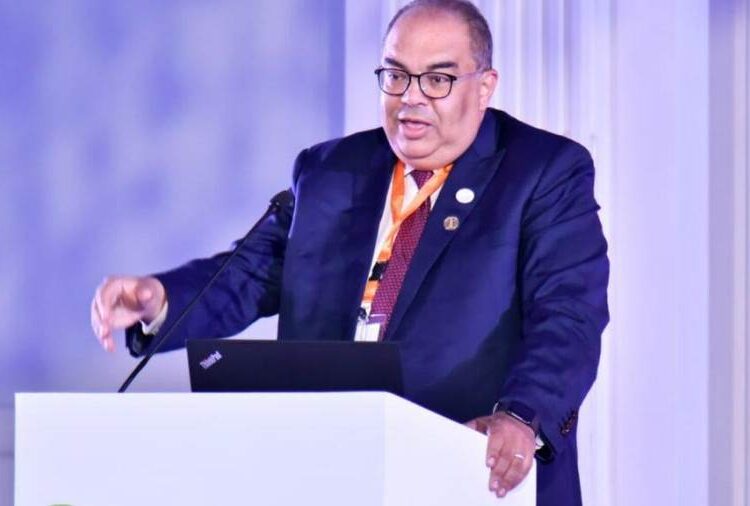Mahmoud Mohieldin, the UN Climate Change High Level Champion for Egypt and UN Special Envoy on Financing 2030 Sustainable Development Agenda, said that transitioning to green and sustainable energy sector is necessary not only to achieve economic growth, but also to enhance important aspects of people’s lives such as health and education.
Mohieldin added, during his participation in a session entitled “Game Changers Accelerating the Global Energy Transition” in COP27, that despite the fact that transitioning energy sector has the biggest share of climate finance, the developing countries – excluding China – need an annual $1 trillion to finance energy sector transition and to provide energy accessibility to 600 million Africans, and this is 10 times the sum pledged in Copenhagen to finance climate action in the developing countries that have been fulfilled by only 7 out of 23 developed countries.
He noted that 80 per cent of investment in energy sector last year went to renewables, however, their contribution to the global energy production doesn’t exceed 5 per cent, adding that energy sector transition in Africa requires strong partnerships, investments, just and sufficient finance.
“Africa has promising energy projects, as Egypt has the fourth largest solar energy plant in the world, while 6 African countries made an alliance for green hydrogen projects.” Mohieldin said, adding that GFANZ will finance climate projects -with energy ones in the front- in Africa and Asia by $89 billions.
In a session about the role of civil society in facing climate change, in which Dr Nivine El-Kabbag, Minister of Social Solidarity participated, Mohieldin stressed that addressing climate issues requires identifying roles of all actors and that every stakeholder takes its responsibility.
“Women, youth and children have been included in COP27 as a result of believing in the necessity of all social categories participation in climate action, and the importance of raising awareness about climate issues and the capability of innovating solutions.” Mohieldin stated.
The climate champion highlighted the critical role of civil society in the five regional roundtables initiative and the national initiative for smart green projects, saying that this demonstrates the capability of civil society in finding and implementing a pipeline of bankable, investable and applicable development and climate projects.
“We depend on civil society in raising awareness about climate issues, and count on its ability to change thoughts and behaviors, beside its role in providing solutions and implementing climate action.” Mohieldin concluded.






Discussion about this post